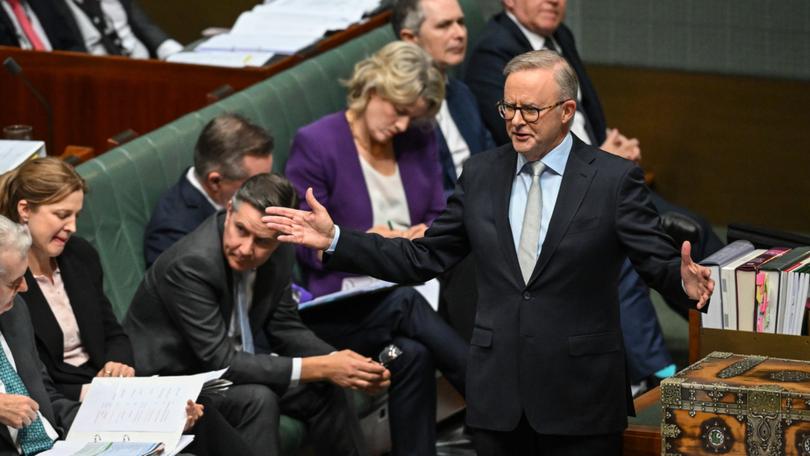KATINA CURTIS: Chalmers’ big assumptions on inflation will have big implications for Albanese
KATINA CURTIS: The most important number in the Budget isn’t in a chart or a table – it’s a courageous assumption about inflation that will take eight months to see if it comes true.

The most important number in the Budget isn’t in a chart or a table – it’s the sentence that says the power bill rebates and boost to rent assistance “could see headline inflation return to the target band by the end of 2024”.
It’s a courageous assumption that will have economists and commentators arguing for the rest of the year whether it will come true.
And it’s one that may come to haunt Treasurer Jim Chalmers and his boss Anthony Albanese.
Sign up to The Nightly's newsletters.
Get the first look at the digital newspaper, curated daily stories and breaking headlines delivered to your inbox.
By continuing you agree to our Terms and Privacy Policy.There is a lot riding on this budget politically.
The election is at most a year away and this forms the basis of the story the Government is going to spend that year telling voters.
A second consecutive surplus is only a small part of that, although you cannot discount its importance as a marker of Labor’s economic credentials.
It also wants to tell a story of prices under control, of wages growing fast enough to actually give people more money in their pocket, and – crucially – of interest rates coming down.
And for that to happen, Labor needs Treasury’s forecasts, made with full knowledge of what’s in the Budget books, to be correct rather than the Reserve Bank’s ones made a week ago.
Chalmers said he was “confident that we are acting on good advice” and that fighting inflation was the primary objective of this Budget, as it has been in his previous two.
“There are a lot of uncertainties around the outlook but that is the Treasury forecast,” he told reporters during the Budget lockup.
However, Treasury has also cautioned in the Budget papers that inflation “could prove more persistent than forecast” with flow-on implications for economic growth and the Government’s policy settings.
In the world outside the Budget papers, if petrol and groceries and insurance and school fees keep going up the implications could flow well beyond policy settings and into which side of politics is making those policies.

